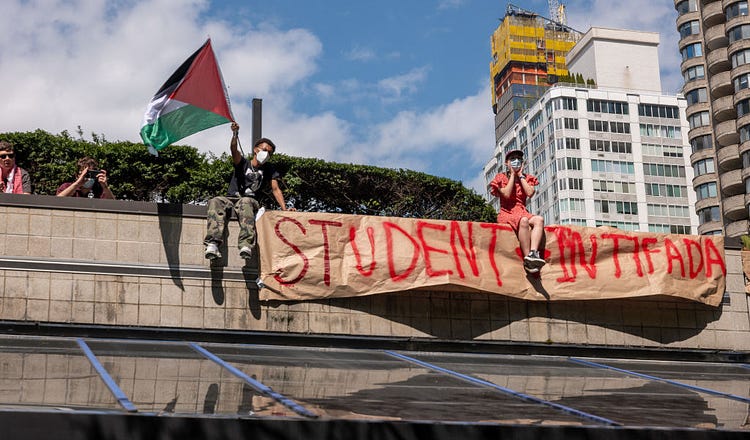Abigail Shrier: There Are Two Sets of Rules for Speech

Pro-Palestinian protesters rally outside the Fordham University Lincoln Center campus where a group had established an encampment inside a building on May 01, 2024 in New York City. (Spencer Platt via Getty Images)
Frat parties with offensive themes are swiftly punished. But publicly contemplate murdering Zionists? That’s a different story.
452
A police officer who pulls over speeding black motorists—and only black motorists—isn’t protecting “law and order.” He’s engaging in invidious discrimination. So too the university administrators who suddenly discover they are free speech absolutists only when student protesters call for the death of their Jewish classmates.
In January, a junior at Colum…
Continue Reading The Free Press
To support our journalism, and unlock all of our investigative stories and provocative commentary about the world as it actually is, subscribe below.
$8.33/month
Billed as $100 yearly
$10/month
Billed as $10 monthly
Already have an account?
Sign In

